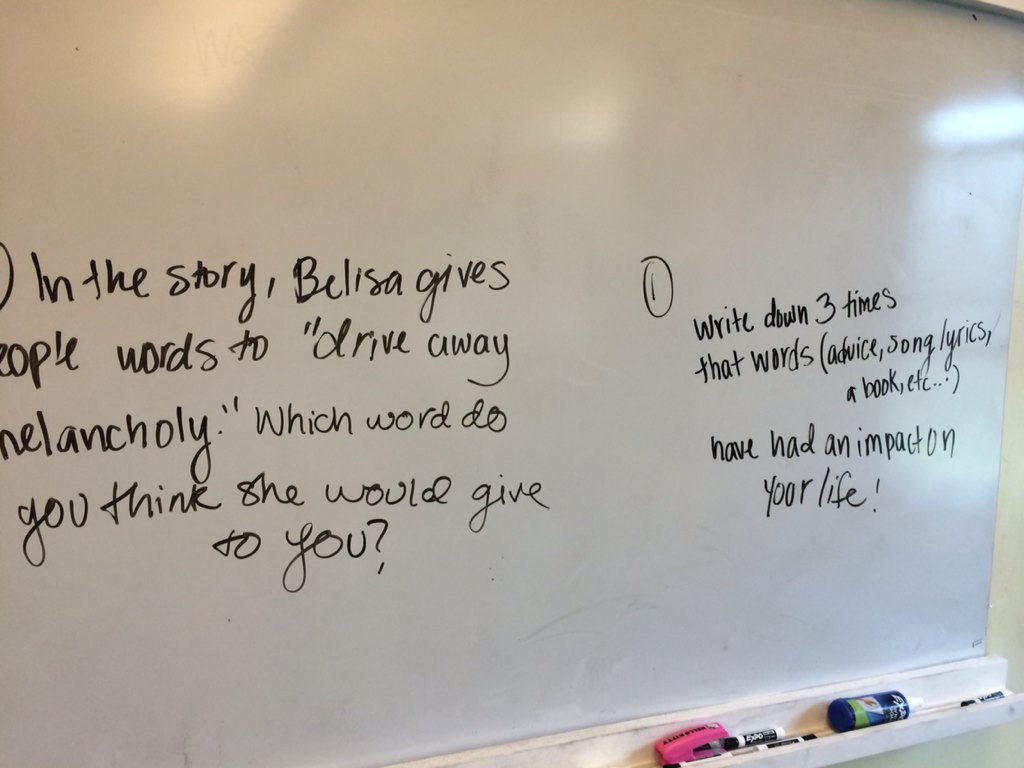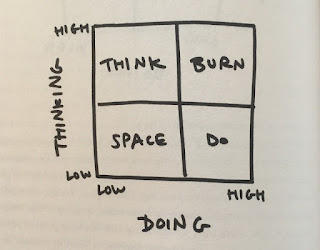(photo by @JPorterNCCS)
I've always loved graduations. I've loved the music, the list of student names, the speeches, the hopefulness of it. I don't know what it is about the ceremonies, but I just love them. I think about one of my favorite movies, Harold and Maude, in which the two title characters connect as a result of their shared love of funerals. I love graduations. I would attend graduations all the time if I could. I would be a graduation crasher.
When my wife and I first began dating I was the one who insisted we drive all the way to Syracuse, NY to attend her brother's graduation from college.
I spoke at my graduation as an 8th grader, and then again at my high school graduation. I wasn't nearly as good as any of the three speakers I heard today, though. No, the 8th grader I watched yesterday, and the two 9th graders who spoke today were simply stunning and had me in tears.
They spoke about loving each other, and about the unfathomable size of their experience at the school. They made me laugh, and they made me cry.
That's were so reflective and they were so beautiful as they searched for words to make sense of this moment on the brink.
I love teaching at a school with four divisions. I love that our school has four moments of arrival and departure. I love that even when my former students come back to visit (like many did today), it is a moment of homecoming, a moment of joyful reuniting.
I wish we did this every year.
In our lives, I mean.
I think we can learn from graduations.
What if birthdays, or new year's day was a day of delivering reflections about the past year, about making toasts to what we've accomplished, about the things we've learned, the spaces in which we've dwelled, and the people who have had an impact on us.
What if we celebrated our lives, and the education that takes place each day as we navigate the penumbral nature of our staying and leaving, coming and going, and the nearness and farness of it all...what if every year had a graduation and a moment of embracing to recognize,
Look at what you've done.
It wasn't perfect. But we did it.
And here we are.
We all could not be more proud.
I love graduations because they are celebrations of life and learning, two things that--if we've done our jobs right as teachers--are now synonymous in the hearts of our former students.















